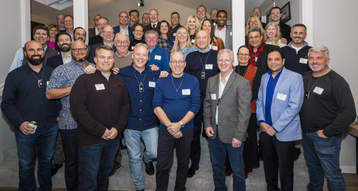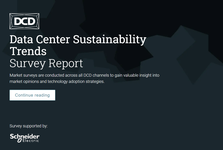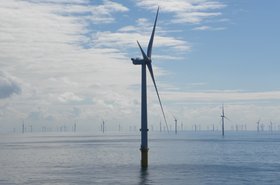Infrastructure Masons, a professional body for big data center builders, has formed a group that wants to create a standard for the embodied carbon in data centers.
The iMasons Climate Accord (ICA), backed by companies including AWS, Google, Meta, and Microsoft, plans to address the fact the lack of an agreed metric for the carbon embodied in the lifecycle of a data center.
The ICA was first put forward by the iMasons advisory council in February 2022. As well as the hyperscalers mentioned, it is now backed by some 40 firms including colocation data center providers, product, service and investment firms that fund, build and operate data centers.
The Accord aims to reduce carbon in digital infrastructure materials, products, and power, a field usually met by lifecycle analysis (LCA).
iMasons says that while its members are able to adopt renewable energy, it is harder to address embodied carbon, because there is currently no universal labeling system or mechanism to measure the carbon consumed over the life of the materials used in bjuilding and operating data centers. The group wants the industry to adopt an open reporting standard for embodied carbon.
The group plans to establish an independent governing body, which will look for - or create - a standard methodology for measuring carbon in digital infrastructure and ensuring transparency.
"One of the biggest topics of discussion at COP26 was how a lack of reliable and consistent measurement hampers progress on the path to net zero. We also know that while many companies are making valiant efforts to improve their carbon footprints, Scope 3 emissions continue to be the most difficult to control and reduce," said Christian Belady, vice president and distinguished engineer - data center advanced Development at Microsoft.
Indeed, Scope 3 emissions recently caused a major setback in Microsoft's progress towards net zero: the company's latest sustainability report acknowledged that a big boom in sales of equipment and services had created a huge growth in Scope 3 emissions from Microsoft's supply chain and customers, which utterly swamped any reductions the company had made in its internal and Scope 2 (electricity-related) emissions
"We're delighted to support such a valuable initiative to help bring both measurement and transparency to the data center industry," said Belady.
Joe Kava, vice president, data centers at Google, similarly admitted that renewable energy was not enough: "We have matched 100 percent of our global electricity use with renewable energy since 2017, and are now working toward operating on 24x7 carbon-free energy as part of our goal to achieve net zero emissions across all of our operations and value chain by 2030," he said. "We are excited to help create an open standard for reducing the embodied carbon in data centers, and work with equipment manufacturers to improve energy efficiency across the industry."




